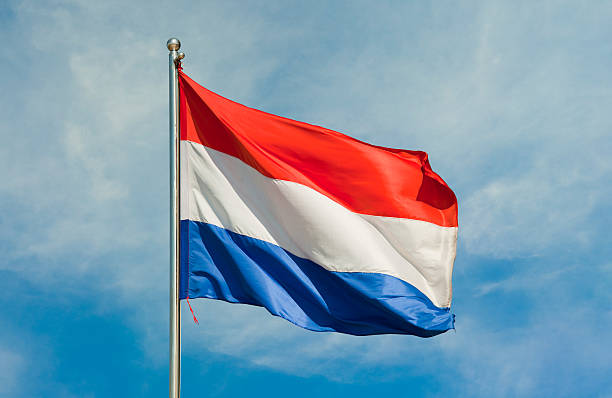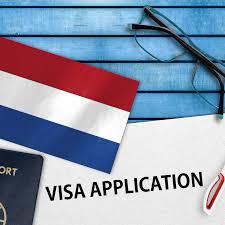Netherlands Business Visa Overview 🌍
The Netherlands stands as one of Europe's most dynamic business hubs, consistently ranking in the top 5 countries for ease of doing business according to the World Bank. With Amsterdam serving as a gateway to Europe and Dutch cities hosting over 9,000 international companies, securing the right business visa represents your first strategic move into this thriving market.
Why the Netherlands attracts global professionals:
- Strategic location with access to 500 million European consumers within 24 hours
- Highly skilled English-speaking workforce (90% English proficiency rate)
- Favorable tax regime with extensive double taxation treaties
- World-class digital infrastructure ranking #2 globally in network readiness
Consider Sarah Chen, a Singapore-based tech entrepreneur who secured her Dutch business visa in 2023. Her fintech startup now processes €2.5 million in transactions monthly from their Amsterdam headquarters, serving clients across 15 European countries. "The Dutch business ecosystem isn't just about location," Chen explains, "it's about accessing a network that amplifies your global reach exponentially."
Types of Dutch Business Visas
Understanding the specific visa category that aligns with your business objectives is crucial for a successful application. The Dutch immigration system offers several pathways, each designed for distinct professional scenarios.
Short-Stay Business Visa (Schengen Visa)
The Type C Schengen visa serves professionals requiring temporary access to the Netherlands for business activities up to 90 days within a 180-day period. This visa category accommodates:
- Business meetings and negotiations
- Conference participation and trade shows
- Short-term consultancy projects
- Market research and client visits
Processing time: 10-15 calendar days
Cost: €80 for adults, €40 for children (6-12 years)
Long-Stay Business Visas (National Visa)
For extended business operations exceeding 90 days, the Netherlands offers several specialized long-stay visa categories:
Startup Visa (Highly Skilled Migrant Route)
This innovative pathway, launched in 2015, targets entrepreneurs with scalable business concepts. Success requires approval from a designated facilitating organization and meeting specific innovation criteria.
Key requirements:
- Innovative business plan with growth potential
- Sufficient financial resources (€4,500 minimum)
- Support from recognized facilitating organization
- Commitment to operate from the Netherlands
Self-Employed Visa (Zelfstandige)
Designed for experienced professionals establishing independent businesses, this route demands demonstrating both business viability and personal qualifications.
Essential criteria:
- Minimum investment threshold: €4,500
- Points-based assessment (35 points required)
- Relevant educational background or professional experience
- Business plan demonstrating market need
Eligibility Requirements and Documentation
The Dutch immigration authorities employ a rigorous assessment framework that evaluates both personal qualifications and business credentials. Understanding these requirements positions you for application success.
Universal Documentation Requirements
Personal Documentation:
- Valid passport (minimum 6 months validity)
- Completed application forms with biometric data
- Professional photographs meeting Dutch specifications
- Educational certificates with apostille authentication
- Criminal background checks from all countries of residence
Financial Documentation:
- Bank statements covering 3-6 months
- Proof of income or business revenue
- Investment documentation for business ventures
- Insurance coverage meeting Dutch requirements
Business-Specific Requirements
Each visa category demands specialized documentation demonstrating business legitimacy and economic contribution.
Step-by-Step Application Process
Successfully navigating the Dutch visa application process requires strategic planning and meticulous attention to detail. Our comprehensive approach transforms complex requirements into manageable steps.
Phase 1: Pre-Application Preparation (2-4 weeks)
1. Visa Category Assessment
Conduct thorough analysis of your business objectives against available visa options. This critical step prevents costly delays and rejections.
2. Documentation Gathering
Systematically collect and authenticate required documents. Priority tip: Begin apostille processes early, as these can take 2-3 weeks in some jurisdictions.
3. Financial Preparation
Ensure bank accounts reflect consistent business income and meet minimum threshold requirements. Immigration officers scrutinize financial stability extensively.
Phase 2: Application Submission
Submit applications through designated channels based on your current location:
- Outside Netherlands: Dutch consulate or visa application center
- Within Netherlands: Immigration and Naturalisation Service (IND)
- EU residents: Direct IND submission with expedited processing
Case study insight: Marcus Weber, a German consultant, experienced a 40% faster processing time by submitting his self-employed visa application directly through IND Amsterdam rather than through consular services. "The direct route provided real-time status updates and immediate feedback on documentation," Weber notes.
Phase 3: Processing and Follow-up
During the assessment period, maintain proactive communication with immigration authorities. Respond promptly to requests for additional information, as delays at this stage can extend processing by several weeks.
Common Challenges and Solutions
Even well-prepared applications can encounter obstacles. Understanding frequent challenges and proven solutions positions you for successful navigation of the Dutch immigration system.
Challenge 1: Financial Requirements Complexity
The Problem: Many applicants underestimate the comprehensive financial documentation required, particularly for self-employed and startup visas.
The Solution: Develop a financial documentation strategy 3-4 months before application. This includes:
- Establishing consistent business income patterns
- Documenting legitimate income sources with supporting contracts
- Creating detailed financial projections for business plans
- Obtaining professional accountant verification of financial statements
Real example: Tech entrepreneur Lisa Rodriguez initially faced rejection due to irregular income patterns in her freelance consulting business. By restructuring her business operations and establishing consistent monthly revenue over six months, her second application succeeded within 8 weeks.
Challenge 2: Business Plan Requirements
The Problem: Generic business plans lacking market-specific insights frequently result in rejection or requests for additional information.
The Solution: Develop comprehensive business plans that demonstrate deep understanding of the Dutch market:
- Include specific Dutch market research and competitor analysis
- Demonstrate understanding of local regulations and business practices
- Show clear economic contribution to Dutch society
- Present realistic financial projections based on local market conditions
Challenge 3: Points System Navigation (Self-Employed Visa)
The Problem: The Dutch points-based system for self-employed visas involves complex calculations across multiple criteria.
The Solution: Systematic approach to maximizing points across all categories:
Points Optimization Strategy
- Education (max 25 points): Ensure all qualifications are properly recognized
- Experience (max 20 points): Document all relevant professional experience
- Age factor (max 10 points): Apply during optimal age range (25-40 years)
- Investment (max 15 points): Consider increasing initial investment for additional points
- Language skills (max 10 points): Obtain certified Dutch language proficiency
Frequently Asked Questions
Can I extend my Schengen business visa if my project requires more time?
Schengen business visas cannot be extended beyond the initial 90-day period within a 180-day window. However, you can apply for a long-stay national visa if your business activities require extended presence. Plan this transition carefully, as you may need to exit the Schengen area before applying for the national visa, depending on your specific circumstances and current visa status.
What happens if my startup visa business fails within the first year?
The Dutch immigration authorities understand that startup businesses carry inherent risks. If your venture fails, you have several options: pivot to a new business concept with IND approval, transition to employment with a sponsoring employer, or apply for a different visa category if eligible. The key is maintaining continuous legal status and communicating proactively with immigration authorities about your situation changes.
Do I need to speak Dutch to qualify for a Netherlands business visa?
Dutch language proficiency is not required for most business visa categories, including Schengen business visas and startup visas. However, basic Dutch knowledge can significantly benefit your points score for self-employed visas and demonstrates commitment to integration. For long-term business success, English proficiency is often more immediately practical given the international business environment, though learning Dutch provides substantial advantages for local market penetration and cultural integration.
Your Pathway to Dutch Business Success
Your immediate action plan:
- Assess your optimal visa pathway - Match your business objectives with the most suitable visa category within the next 2 weeks
- Begin documentation preparation - Start gathering and authenticating required documents, prioritizing items requiring apostille certification
- Develop your market strategy - Research the Dutch business environment specific to your industry and create connections with local facilitating organizations
- Engage professional guidance - Consider specialist immigration advice to optimize your application strategy and avoid costly delays
- Prepare your financial foundation - Establish consistent business income patterns and ensure compliance with investment thresholds
The Dutch business ecosystem continues evolving rapidly, with new initiatives like the Scale-up Visa and enhanced startup support programs launching regularly. Staying informed about these developments and maintaining flexibility in your approach positions you for long-term success.
As global business becomes increasingly interconnected, your Netherlands business visa represents more than immigration compliance—it's your strategic investment in accessing one of the world's most dynamic business environments. The question isn't whether you can afford to pursue this opportunity, but whether you can afford to miss it while your competitors establish their European foothold.
What specific aspects of your business concept align most strongly with Dutch market opportunities, and how will you leverage your visa approval to maximize your competitive advantage in the European marketplace?
.svg)
.svg)

.svg)
.svg)



.svg)
.svg)
.svg)






